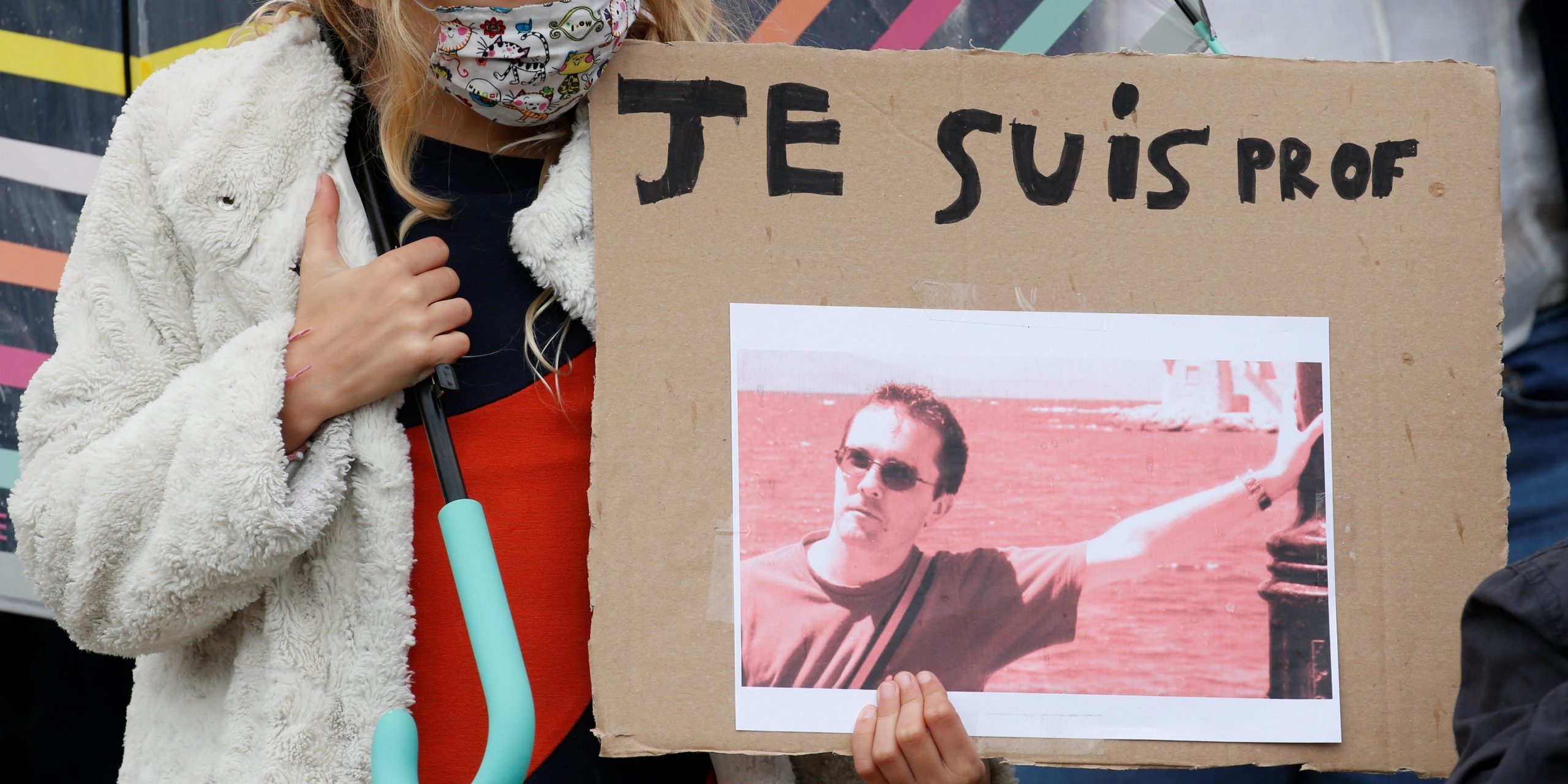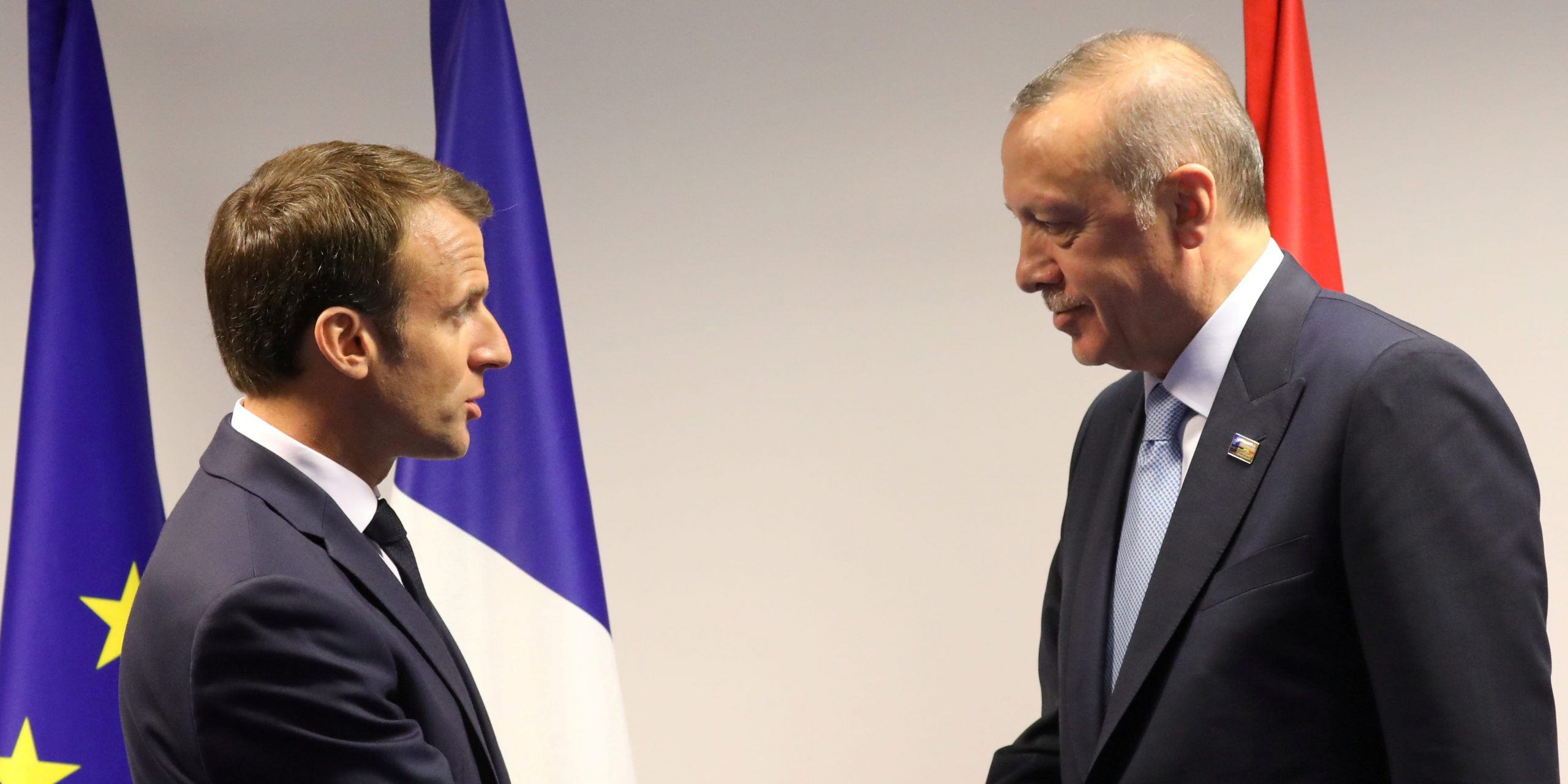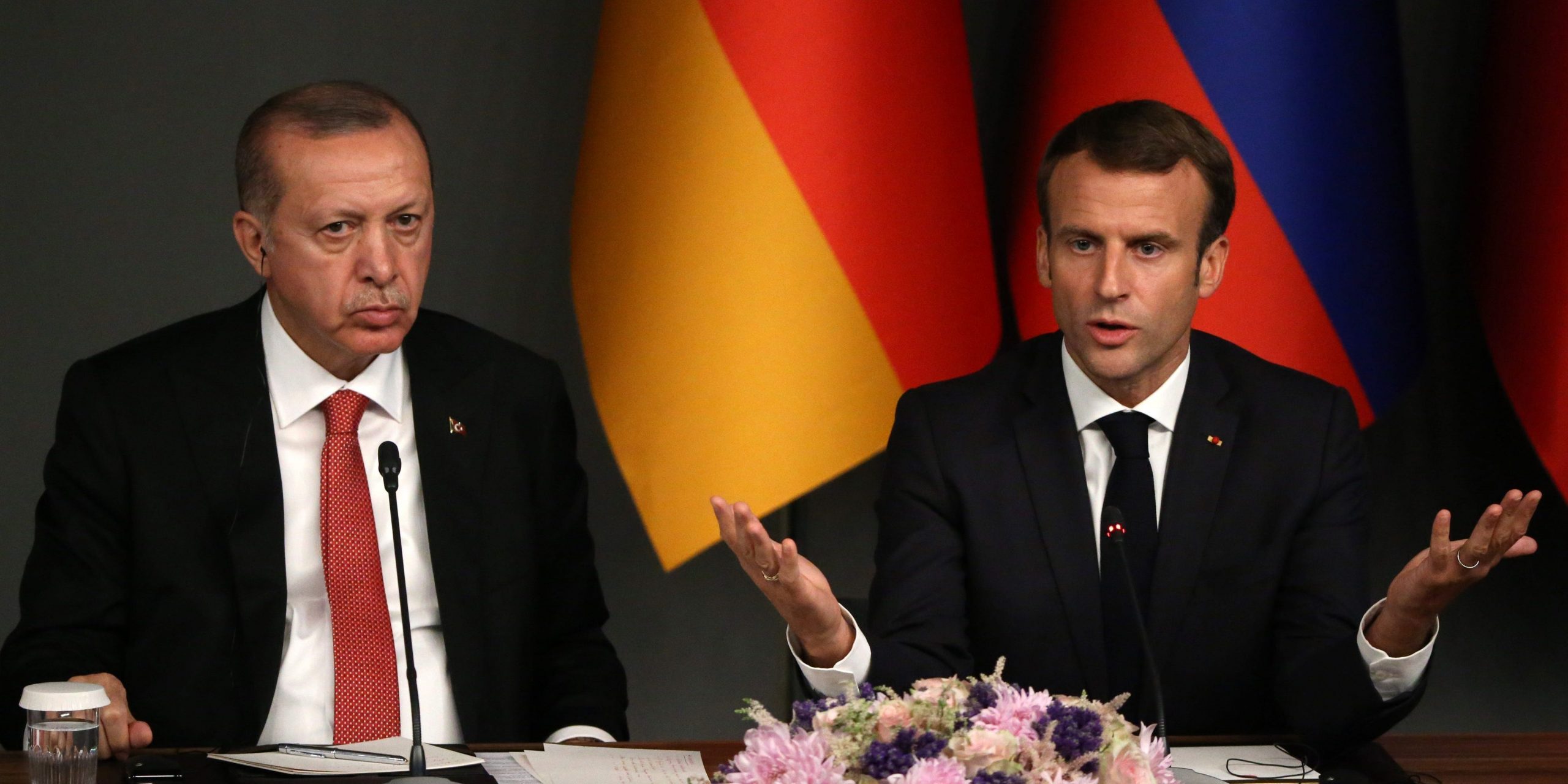
Mikhail Svetlov/Getty Images
- France pulled its ambassador from Turkey on Sunday after President Recep Tayyip Erdogan said his counterpart Emmanuel Macron “needs mental treatment.”
- Erdogan’s comments came after Macron criticized Muslim communities in France following the October 16 killing of a schoolteacher who had shown his class cartoons mocking the Prophet Muhammad.
- Macron is preparing to introduce a new law in December which would give the French government powers to monitor and regulate mosques and Islamic communities.
- The law was first introduced on October 2, but gained support after Samuel Paty’s death.
- Arab countries including Kuwait, Jordan, and Qatar threatened to boycott French goods in response. France said those calls were “baseless.”
- Visit Business Insider’s homepage for more stories.
France has pulled its ambassador from Turkey, and Arab states are shunning French products, after President Emmanuel Macron renewed an assault on Islam following the killing of a Paris schoolteacher.
Samuel Paty, 47, was decapitated in northwestern Paris on October 16 after showing his class inflammatory cartoons that mocked the Prophet Muhammad. His killer, who has been identified as Chechen refugee Abdoulakh Anzorov, was shot dead by police at the scene. On Wednesday, French prosecutors charged seven people with participating in a terror attack.
Party’s religiously-motivated killing is the latest in a long line to hit France and has angered the country, prompting Macron to fast-track a law that would see unprecedented regulation of the organized Islamic faith in France.
On October 2, Macron called Islam “a religion that is in crisis all over the world” and said the law would help prevent radicalization and foster better integration.
Macron said Islamist separatism was “a conscious, theorized, politico-religious project that materializes through repeated deviations from the values of the republic and which often result in the creation of a counter-society.”

REUTERS/Pascal Rossigno
'What is his problem with Muslims?'
In response to Macron's comments, Turkish President Recep Tayyip Erdogan on Saturday said he believes his French counterpart "needs mental treatment."
"What is Macron's problem with Islam? What is his problem with Muslims?" Erdogan added.
France recalled its ambassador to Turkey on Sunday in response to Erdogan's comments.
"President Erdogan's comments are unacceptable. Excess and rudeness are not a method," an Élysée Palace official told Agence France-Presse. "We demand that Erdogan change the course of his policy because it is dangerous in every respect."
Meanwhile, a number of Muslim-majority countries have also seen their citizens start boycotting French-made products.
France said Sunday that boycotts in places like Kuwait, Jordan, and Qatar were "baseless" and "pushed by a radical minority."

Reuters
Macron's history on Islam
Macron's rhetoric about Islam has angered many Muslim leaders, but it is not the first time the French president has announced his intention to regulate and scrutinize the faith.
In 2018, Macron said that Arab states were influencing Muslims in France through the funding of mosques and clerics.
Secularism — or the delineation of religion and the state — has been enshrined in the French constitution since 1905. Macron now wants to strengthen measures that would ensure that.
He said last week that he wants "an Islam in France that can be an Islam of the Enlightenment," which will stop "repeated deviations from the values of the republic and which often result in the creation of a counter-society."
As part of the new law, the French government will have the power to regulate how mosques are funded and train their clerics, and could even dissolve dozens of Muslim associations if they promote hatred, The Washington Post reported.
On Sunday Imran Khan, the prime minister of Pakistan — the world's second-largest Muslim-majority nation — said Macron was "attacking Islam, clearly without having any understanding of it," Reuters reported.
—Emmanuel Macron (@EmmanuelMacron) October 25, 2020
- Read more:
- Students pay tribute to beheaded French teacher who feared for his safety after teaching a lesson about freedom of expression
- 4 French students detained after a teacher who showed cartoons of the Prophet Muhammad was beheaded
- The French government vowed to bring social media giants 'under control' following the role of online platforms in the beheading of a teacher in Paris
